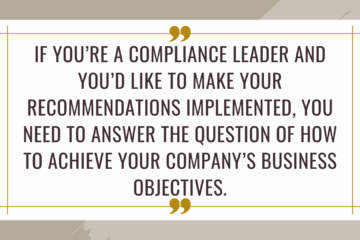FATCA and FinTech Startups
Today I wanted to address a few most common questions about FATCA and the most common elections that usually apply to FinTech startups.
As you probably know by now – there is no way I could fit in the mountain of FATCA rules into a short article, the idea is that I will share with you some options and elections that are available, and if you feel it’s applicable for your business, you can apply them or investigate further.
Q: I’m not a US person and I don’t work with US-based clients, why do I need to complete these confusing W-8BEN-E Forms every year for my banks?
Super Simplified Answer: It's, unfortunate, but yes, the banks are obliged to ask you these questions. All financial institutions (even if they think they don’t have US clients) must take reasonable steps to make sure that they are able to identify among their clients US tax payers and if indeed they have clients who might be US tax payers with the balances on December 31 exceeding 50,000 USD (to simplify things), information about these accounts must be reported to IRS.
Q: If I am a FinTech company, does it mean I also need to ask my clients to complete the W-8BEN-E form?
Short Answer: Not really - If you are a FinTech business carrying out activities that are similar to banking (e.g. accepting deposits, taking custody of funds, opening accounts to clients, etc.) – most likely you will be an entity that is expected to have processes around how you are going to identify potential US tax payers among your customers, but you do have flexibility how you are going to do it and you may choose to do it without requesting your customers to complete this painful form.
Depending on your business (and especially if your entity only serves individuals and not legal entities) you may choose to ask FATCA-related questions only to those of your customers who are likely to have a balance of 50,000 USD (and may become reportable) and/or who have provided to you some KYC details associated with US (e.g. US citizenship, US phone, US address, US date of birth).
What are the most relevant categories for a FinTech startup within W-8BEN-E form?
As you probably know by now – there is no way I could fit in the mountain of FATCA rules into a short article, the idea is that I will share with you some options and elections that are available, and if you feel it’s applicable for your business, you can apply them or investigate further.
Q: I’m not a US person and I don’t work with US-based clients, why do I need to complete these confusing W-8BEN-E Forms every year for my banks?
Super Simplified Answer: It's, unfortunate, but yes, the banks are obliged to ask you these questions. All financial institutions (even if they think they don’t have US clients) must take reasonable steps to make sure that they are able to identify among their clients US tax payers and if indeed they have clients who might be US tax payers with the balances on December 31 exceeding 50,000 USD (to simplify things), information about these accounts must be reported to IRS.
Q: If I am a FinTech company, does it mean I also need to ask my clients to complete the W-8BEN-E form?
Short Answer: Not really - If you are a FinTech business carrying out activities that are similar to banking (e.g. accepting deposits, taking custody of funds, opening accounts to clients, etc.) – most likely you will be an entity that is expected to have processes around how you are going to identify potential US tax payers among your customers, but you do have flexibility how you are going to do it and you may choose to do it without requesting your customers to complete this painful form.
Depending on your business (and especially if your entity only serves individuals and not legal entities) you may choose to ask FATCA-related questions only to those of your customers who are likely to have a balance of 50,000 USD (and may become reportable) and/or who have provided to you some KYC details associated with US (e.g. US citizenship, US phone, US address, US date of birth).
What are the most relevant categories for a FinTech startup within W-8BEN-E form?
- Active NFFE (active not financial foreign entity) – simply speaking, active business that is not accepting customer funds. Most R&D, SaaA and tech-focused startups would be within this category. The best, easiest category to be in.
- Excepted nonfinancial start-up company: a startup company intending to operate a non-financial business within the next 24 months (it’s important that this startup is not a financial company, i.e. not an investment fund etc, and the future activities are not a financial business in a sense that it will not be a deposit-taking activity) – the main difference between this category and the previous one is that this entity does not need to be fully operational at the time the form is completed.
- Participating FFI (Foreign Financial Institution) or deemed-compliant FFI (the main idea is not to end up as non-participating FFI, which would be a really inconvenient status) – both Participating FFI or deemed-compliant FFI means that this FinTech is in business of accepting customer funds and has implemented certain processes of either reporting relevant customers to the IRS or documented its status in such a way that it does not need to report it, but is still registered. Aim for one of those categories.
- One option relevant for FinTech startups is FFI with only low-value accounts: meaning that the customer of this entity can normally never have a balance above 50,000 USD and the overall volume of customer funds is under 50 million USD.



 Prefer to listen to this content instead
Prefer to listen to this content instead